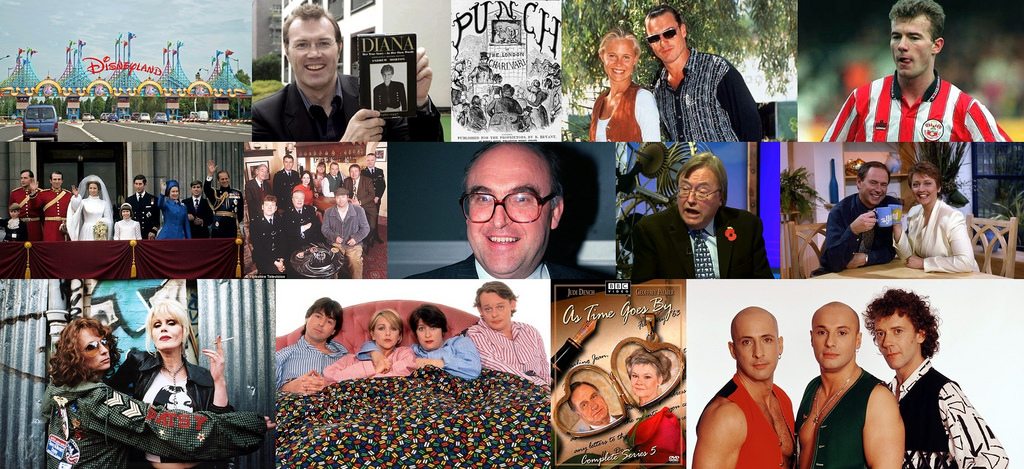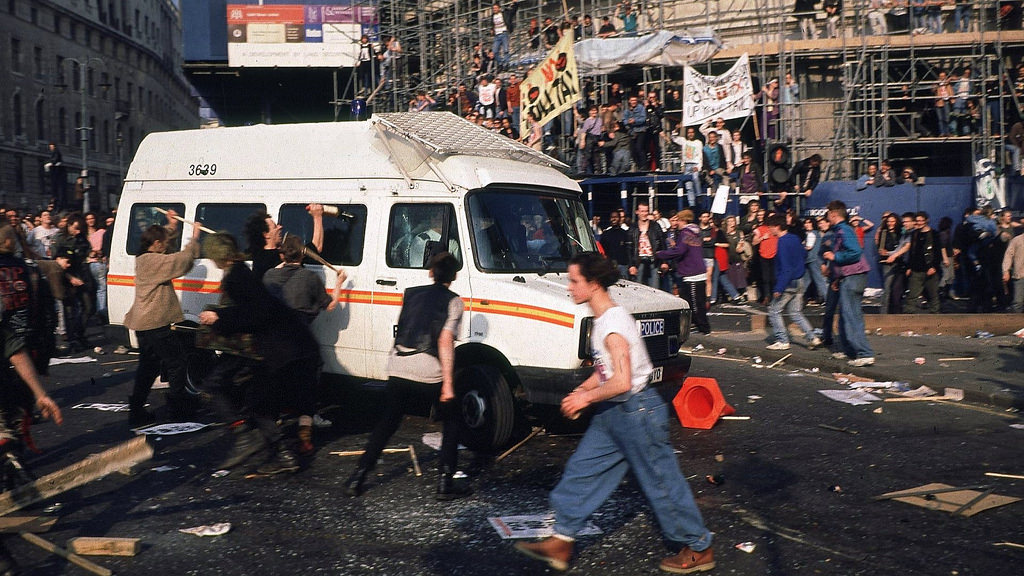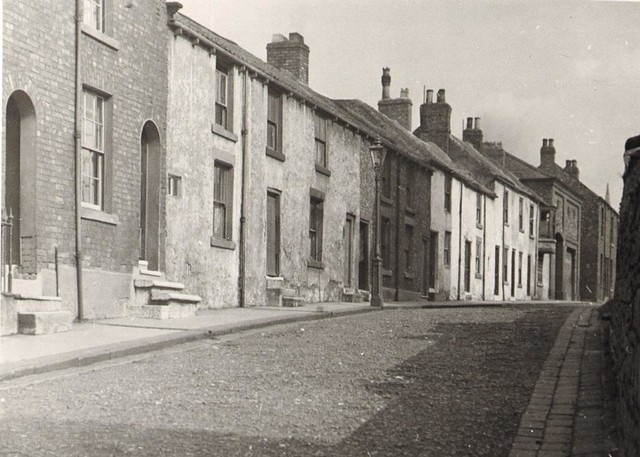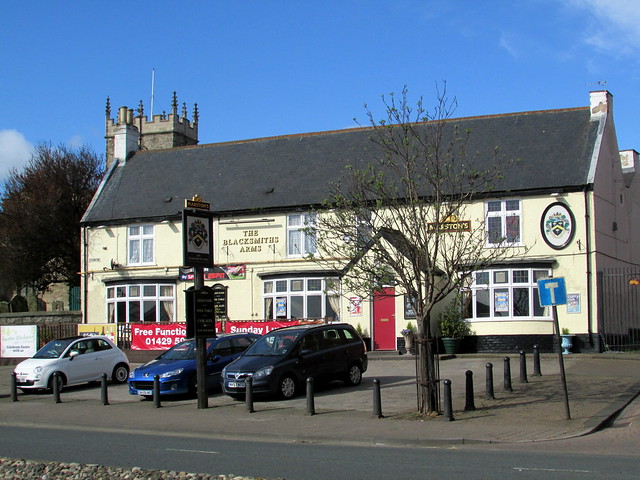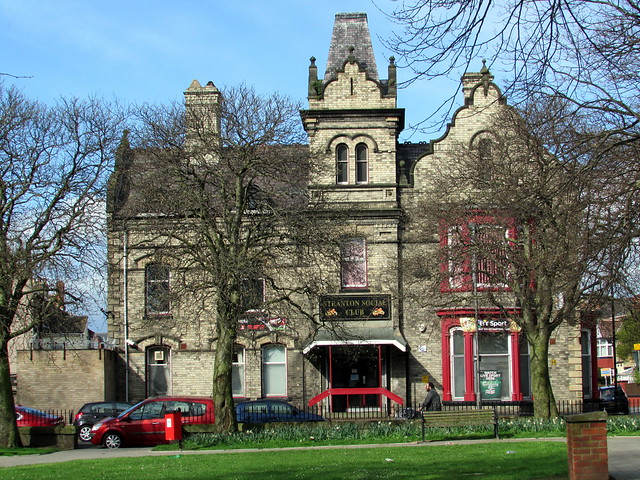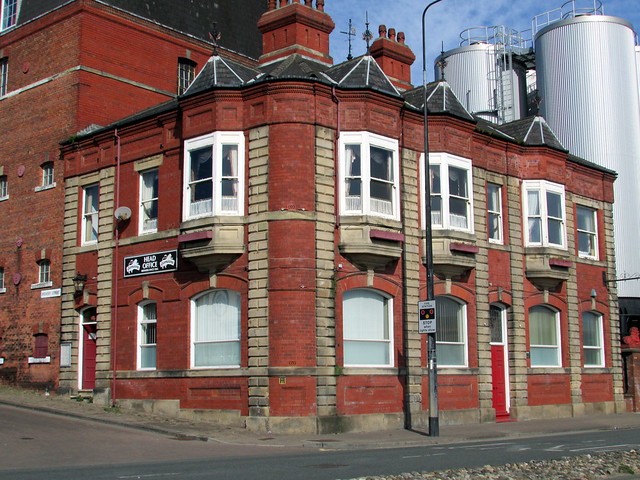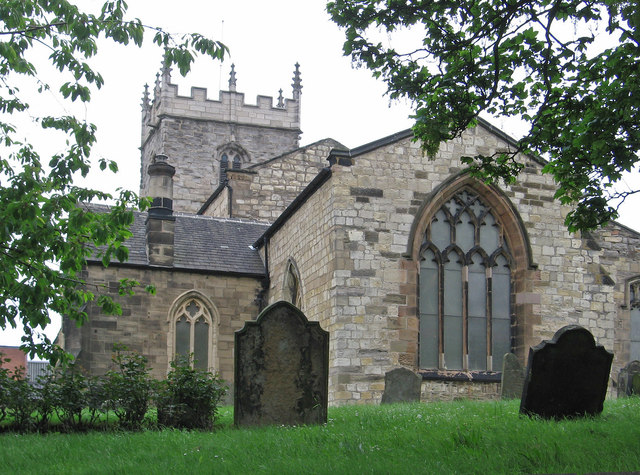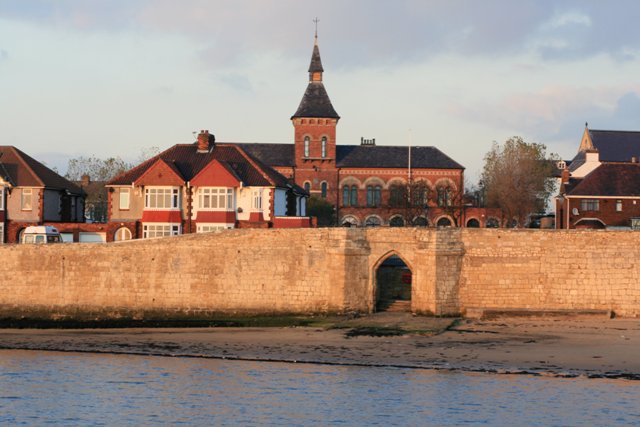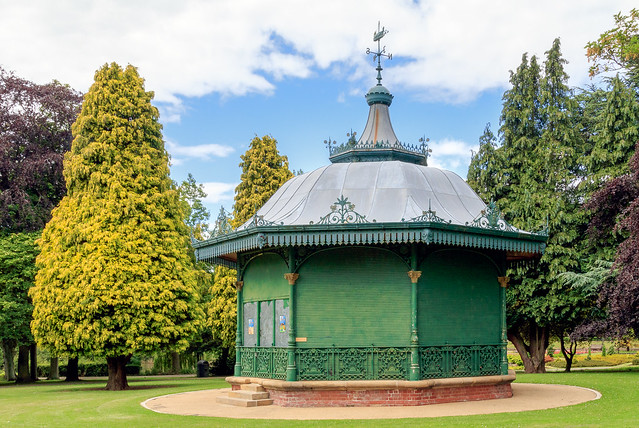That Was the Year That Was - 1992

-
Description
1992 In Technology The first Nicotine patch is introduced to help stop smoking and DNA Fingerprinting is Invented. The continuing Balkan War for the next 3 years between Muslims, Serbs and Croats prompting UN intervention. In The UK Rioting breaks out in Cities including Bristol and in France Euro Disney opens. In the US Bill Clinton becomes president and the largest Mall in America Minnesota's Mall of America is constructed spanning 78 acres. The Conservative Party are re-elected for a fourth successive term 9 April - General Election: The Conservative Party are re-elected for a fourth successive term, in their first election under John Major's leadership. With the government's victory in the election confirmed, John Major assures the public that he will lead the country out of recession that has blighted it for nearly two years. 11 April - Publication of The Sun newspaper's iconic front page headline 'It's The Sun Wot Won It', as the tabloid newspaper claims it won the general election for the Conservatives with its anti-Kinnock front page headline on election day. 13 April - Neil Kinnock resigns as leader of the Labour Party following the defeat of his party in the General Election. he had led the party for eight-and-a-half years since October 1983, and was the longest serving opposition leader in British political history. Diana: Her True Story 7 June - A controversial new biography of Diana, Princess of Wales, Diana: Her True Story, written by Andrew Morton, is published, revealing that she has made five suicide attempts following her discovery that The Prince of Wales had resumed an affair with his previous girlfriend Mrs Parker-Bowles shortly after Prince William's birth in 1982. The late Queen Elizabeth, the Queen Mother, reacted with "utter abhorrence" to Diana, Princess of Wales's decision to "wash the dirty linen in public" by disclosing details of the breakdown of her marriage. An official biography published today describes how Queen Elizabeth was "deeply shocked" when it emerged that Princess Diana had collaborated with Andrew Morton on the book Diana: Her True Story, which caused a sensation when it was published in 1992. She was also dismayed by the Prince of Wales's decision to discuss his private life with the broadcaster Jonathan Dimbleby for a TV programme in which he admitted he had been unfaithful. Queen Elizabeth revealed her thoughts about her grandson's divorce in a series of previously unpublished interviews with Sir Eric Anderson, the former Provost of Eton College, which were made available to the biographer William Shawcross. "It is always a mistake to talk about your marriage," she told Mr Anderson, who spent a total of 20 hours interviewing her. Details of Queen Elizabeth's thoughts on the Royal divorce are contained in Queen Elizabeth the Queen Mother: The Official Biography, which was commissioned by the Queen. In 1992, Andrew Morton's book disclosed that the Princess of Wales had attempted suicide on at least five occasions in the 1980s, suffered from bulimia and felt rejected both by Prince Charles and other members of the Royal family, including the Queen. At the time of its publication, it was rumoured that the Princess herself had helped Mr Morton with the book, and after her death in 1997 Mr Morton confirmed that the Princess had indeed been the main source, and had even checked the proofs of the book for accuracy. In 1995 the Princess recorded a Panorama interview in which she talked about the Prince of Wales's affair with the then Camilla Parker Bowles, saying: "There were three of us in this marriage, so it was a bit crowded." Punch ends 150 years of satire The editors of Punch, Britain's oldest satirical magazine, announce that it will be discontinued due to massive losses. It has been in circulation since 1841. After Years of reports of the imminent demise of Punch had their moment of truth when United Newspapers, owner of the magazine, said it would close on April 8 1992 after 151 years. Staff were told that United had had enough of low sales, disappointing advertising revenue, and losses running at up to £2 million a year. Unless a buyer can be found, what was once Britain's leading humorous magazine but which became the butt of the lampooners will publish only two more issues. The old joke, "Punch is not as funny as it used to be - but then again it never was", drew little laughs as it folded. Four years later the Egyptian businessman Mohamed al Fayed brought it back to life. He funded new exposés on the likes of Peter Mandelson, the architect of New Labour, and the media mogul Rupert Murdoch. But eventually it was costing £40,000 per issue to produce with subscriptions at only 6,000 and Mr Al Fayed closed the title again in 2002. A website still exists for the magazine, reported to have at one time refused articles by Charles Dickens, with many hoping it could make a comeback and regain its cutting-edge image. Bring back Eldorado The soap, which cost British taxpayers £10m - with £2m alone being blown on the huge set in the town of Coín in Malaga - only ran for one year before being axed by incoming director general Alan Yentob in 1993. The 'sunshine soap', which aired three times-a-week and was based around the lives of ex-pats living in the Costa Del Sol, only ran for 156 episodes from July 6 1992 until July 9 1993. It had been blasted by critics for it 'amateurish acting' and 'very unconvincing storylines' and is now a byword for a TV show which flops. But BBC staff have urged the new director general George Entwistle to 'consider' bringing the soap back to our screens - saying it will help brink a 'chink of sunlight' into recession-hit Britain. The show started with an audience of 8m, dipping to 3.5m, but stabilising at 5m by the time it was axed - which is 'not bad' in today's viewing figures. The set in Spain once used by the BBC's soap opera flop Eldorado is now a ghost town. The collection of deserted whitewashed buildings has been preserved by the heat and the dry mountain air in a pine forest 10 miles north-east of Marbella. The purpose-built site provided the backdrop to the doomed 1992 serial, which lasted just 156 episodes before being axed despite costing licence payers more than £10 million. Much of the money was spent on creating the set, which was supposed to replicate the sunshine and simplicity of life in Australian soaps such as Home and Away and Neighbours. Fifteen years after it was created, the set lies empty except for the former dressing rooms which are rented out to holidaymakers. The 18 apartments and three villas are empty and the once-alluring crystal blue swimming pool has turned green and is used by ducks. Apart from graffiti and beer cans left by local teenagers who hang around the area, the set looks the same as it did when new BBC1 controller Alan Yentob axed it in July 1993. Facades, including the front of what is supposed to be a traditional Spanish church, appear just as new as they did in 1992. The site was briefly used as a holiday camp but that suffered the same fate as the programme, which was based on the lives of British ex-pats in Spain. Eldorado remains the biggest British television flop and became a byword for failure following its year on the airwaves. It was designed to replace Terry Wogan's chat show, Wogan, and producers hoped its sex-and-Sangria cheeriness would appeal to viewers fed up with the drab grittiness of EastEnders and the early-1990s recession. However, the use of mostly untrained actors, the mixture of Spanish and English dialogue, persistent sound problems and appalling reviews sank the programme for good. It ended as implausibly as it began, with one of the main characters, Marcus Tandy, played by Jesse Birdsall, escaping an attempt on his life with his car being blown up, and sailing off into the distance on a boat, with his girlfriend Pilar. It has emerged that the set of another abandoned soap, Brookside, is also lying abandoned. The Merseyside cul-de-sac, known to millions of viewers as Brookside Close, was refurbished by developers after the programme ended in 2003 but has failed to attract interest from buyers who are now offering the entire site for £2 million. Whatever happened to Antonia de Sancha - the kiss-and-tell lover who brought down David Mellor? No one could blame Antonia de Sancha for being a little peeved. There she is, sitting outside her favourite restaurant in west London, when a passing photographer captures a not particularly flattering image of her. Said image is then published and compared unfavourably with those of the past, in an apparent indictment of the human ageing process. In fact, de Sancha takes her sudden and random re-emergence into the spotlight with bemused good grace. “What is this all about?” she asks, managing a wry smile. “What am I supposed to have done?” Nothing, really. The picture has merely made people curious about what has happened in the 20 years since she made a brief, memorable foray on to the public stage, sowing an image in the mind that time cannot wither: David Mellor, the Secretary of State for National Heritage, cavorting with her in a Chelsea FC strip. Behind his wife’s back, obviously. No matter that the actress’s description of her affair with Mellor was flawed from a factual point of view, it was enough to hole his career below the waterline. A sometimes abrasive and arrogant character, he was the first in a long line of Tory politicians to fall victim to weakness for the flesh during the John Major era. Tim Yeo, Hartley Booth, the Earl of Caithness, Piers Merchant… the tabloid scalps multiplied as the 1990s progressed, undoing Major’s “Back to Basics” morality drive and undermining his government. For a few weeks in 1992, de Sancha was hot property, managed to perfection by Max Clifford, then king of kiss-and-tell PR. She earned £35,000 from her disclosures, but there was a cost to her theatrical career. Now, she spends much of her time with friends in a small Spanish restaurant on the Portobello Road, apparently underemployed. 1992 Timeline January - Statistics show that economic growth returned during the final quarter of 1991 after five successive quarters of contraction. 9 January - Liberal Democrat leader Paddy Ashdown proposes a £3billion package which would create 400,000 jobs in 12 months. Alison Halford, Britain's most senior policewoman, is suspended from duty for a second time following a police authority meeting. 10 January - The first full week of 1992 sees some 4,000 jobs lost across Britain, as the nation's recession continues. Almost 20% of those job cuts have been by GEC, Britain's leading telecommunications manufacturer, where 750 redundancies are announced today. 14 January - The Bank of Credit and Commerce International goes into liquidation. 17 January - In a Provisional Irish Republican Army (IRA) bomb attack near Omagh, seven construction workers are killed and seven others injured. This is the highest number of casualties in an IRA attack since 1988. The first MORI poll of 1992 shows the Conservatives three points ahead of Labour on 42%, while the Liberal Democrats have their best showing yet with 16% of the vote. 18 January - John Major announces that the general election will be held on 9 April. 29 January - The Department of Health reveals that AIDS cases among heterosexuals increased by 50% between 1990 and 1991. 30 January - John Major agrees a weapons control deal with new Russian premier Boris Yeltsin at 10 Downing Street. 2 February - Neil Kinnock, Labour leader, denies reports that he had a "Kremlin connection" during the 1980s. 6 February - The Queen celebrates her Ruby Jubilee. 7 February - Signature of the Maastricht Treaty. 8 February–23 February - Great Britain and Northern Ireland compete at the Winter Olympics in Albertville, France, but do not win any medals. 9 February - Prime Minister John Major speaks of his hopes that the recession will soon be over as the economy is now showing signs of recovery. 15 February - Neil Kinnock, Labour Party leader, speaks of his belief that the Conservative government's failure to halt the current recession will win his party the forthcoming general election. 18 February - David Stevens, head of community relations, blames the recession for the recent rise in crime across Britain - most of all in deprived areas. 20 February - Hopes of an end to the recession are dashed by government figures which reveal that GDP fell by 0.3% in the final quarter of 1991. 23 February - The London Business School predicts an economic growth rate of 1.2% for this year, sparking hopes that the recession is nearing its March - Toyota launches the TMUK-built Carina E at the Geneva Motor Show. 6 March - Parliament passes the Further and Higher Education Act, allowing polytechnics to become new universities. 11 March - John Major announces that the election will be held on 9 April. Shadow Chancellor John Smith condemns the recent Budget as a "missed opportunity" by the Conservatives, saying that they did "nothing" for jobs, training, skills, construction or economic recovery. 13 March - The first ecumenical church in Britain, the Christ the Cornerstone Church in Milton Keynes is opened. 17 March - Shadow Chancellor John Smith announces that there will be no tax reductions this year if Labour win the election. 19 March - Buckingham Palace announces that Duke and Duchess of York are to separate after six years of marriage. Unemployment has reached 2,647,300 - 9.4% of the British workforce, the highest level since late 1987. 24 March - Election campaigning becomes dominated by the "War of Jennifer's Ear". The editors of Punch, Britain's oldest satirical magazine, announce that it will be discontinued due to massive losses. It has been in circulation since 1841. 26 March - Television entertainer Roy Castle (59), who currently presents Record Breakers, announces that he is suffering from lung cancer. 27 March – During the 1992 General Election campaign, Conservative MP Edwina Currie famously pours a glass of orange juice over Labour's Peter Snape shortly after an edition of the Midlands based debate show Central Weekend has finished airing. Speaking about the incident later, Currie said "I just looked at my orange juice, and looked at this man from which this stream of abuse was emanating, and thought 'I know how to shut you up.' ". 28 March – Amanda Normansell wins the third series of Stars in Their Eyes, performing as Patsy Cline. 29 March - John Spencer, 8th Earl Spencer and father of Princess Diana, dies suddenly from pneumonia at the age of 68. April – Statistics show that the first quarter of this year saw the economy grow for the second quarter running, the sequel to five successive quarters of detraction, though the growth was still too narrow for the recession to be declared over. Launch of the music video channel The Box. 1 April - The latest opinion polls show a narrow lead for Labour, which would force a hung parliament in the election next week. 4 April - Party Politics becomes the tallest horse to win the Grand National. 5 April - At his pre-election speech, Neil Kinnock promises a strong economic recovery if he leads the Labour party to election victory on Thursday. 6 April - Women's Royal Army Corps disbanded, its members being fully absorbed into the regular British Army. 7 April - The final MORI poll before the general election shows Labour one point ahead of the Conservatives on 39%, while the Liberal Democrats continue to enjoy a surge in popularity with 20% of the vote. Most opinion polls show a similar situation, hinting at either a narrow Labour majority or a hung parliament. 9 April - General Election: The Conservative Party are re-elected for a fourth successive term, in their first election under John Major's leadership. Their majority is reduced to 21 seats but they have attracted more than 14,000,000 votes - the highest number of votes ever attracted in a general election. Notable retirements from parliament at this election include Margaret Thatcher (Conservative prime minister for over eleven years until her resignation seventeen months ago) and the former Labour Party leader Michael Foot. 10 April - Provisional Irish Republican Army detonates two bombs at the Baltic Exchange in central London, killing three. With the government's victory in the election confirmed, John Major assures the public that he will lead the country out of recession that has blighted it for nearly two years. 11 April - Publication of The Sun newspaper's iconic front page headline 'It's The Sun Wot Won It', as the tabloid newspaper claims it won the general election for the Conservatives with its anti-Kinnock front page headline on election day. 13 April - Neil Kinnock resigns as leader of the Labour Party following the defeat of his party in the General Election. he had led the party for eight-and-a-half years since October 1983, and was the longest serving opposition leader in British political history. The Princess Royal announces her divorce from Capt Mark Phillips after 18 years of marriage, having separated in 1989. 14 April - 10 April – ITV airs the first episode of Heartbeat, a long running police drama set in North Yorkshire during the 1960s. 16 April - Unemployment has now risen 23 months in succession, but the March rise in unemployment was the smallest monthly rise so far. 17–20 April - Lost Gardens of Heligan in Cornwall first opened to the public. 27 April - Betty Boothroyd, 62-year-old Labour MP for West Bromwich West in the West Midlands, is elected as Speaker of the House of Commons, the first woman to hold the position. 5 May - UEFA awards the 1996 European Football Championships to England. 6 May - John Major promises British voters improved services and more money to spend. 12 May - Plans are unveiled for a fifth terminal at Heathrow Airport, which is now the busiest airport in the world. May - Twenty-two "Maastricht Rebels" vote against the government on the second reading of the European Communities (Amendment) Bill. 17 May - Nigel Mansell gains the 26th Grand Prix win of his racing career at Imola, San Marino. He is now the most successful British driver in Grand Prix races, and the fourth worldwide. June - Cones Hotline introduced enabling members of the public to complain about traffic cones being deployed on a road for no apparent reason. 7 June - A controversial new biography of Diana, Princess of Wales, Diana: Her True Story, written by Andrew Morton, is published, revealing that she has made five suicide attempts following her discovery that The Prince of Wales had resumed an affair with his previous girlfriend Mrs Parker-Bowles shortly after Prince William's birth in 1982. 9–10 June – Episodes 1450–1454 of Australian soap Neighbours are heavily censored by the BBC because they contain an incest storyline between the characters Glen Donnelly and Lucy Robinson, who had not realised they were half-siblings when they began a relationship. Scenes involving the story are cut from Episode 1450, aired on 9 June, while Episodes 1451–1454 are edited together into one episode, which is transmitted the following day. The scenes were shown uncut in repeats aired by another channel some years later. 17 June - Almost 2,700,000 people are now out of work as unemployment continues to rise. 25 June - GDP is reported to have fallen by 0.5% in the first quarter of this year as the recession continues. 30 June - Margaret Thatcher takes her place in the House of Lords as Baroness Thatcher, nineteen months after resigning as Prime Minister. July - Statistics show that the economy contracted during the second quarter of this year. 2 July - The IRA admits to murdering three men whose bodies were found by the army at various locations around Armagh last night. The men are believed to have been informers employed by MI5. 6 July – BBC1 launches the ill fated Eldorado, a soap about a group of ex-pats living in Spain. The series is axed the following year. 10 July - One of the first major signs of economic recovery is shown as inflation falls from 4.3% to 3.9%. 17 July - John Smith is elected leader of the Labour Party. Official opening of Manchester Metrolink, the first new-generation light rail system with street running in the British Isles. 21 July - British Airways announces a takeover of USAir. 23 July - Three months after losing the general election, Labour finish four points ahead of the Conservatives in a MORI poll, with 43% of the vote. 25 July–9 August - Great Britain and Northern Ireland compete at the Olympics in Barcelona and win 5 gold, 3 silver and 12 bronze medals. 27 July - Alan Shearer becomes Britain's most expensive footballer in a £3.6 million transfer from Southampton to Blackburn Rovers. Shearer, who turns 22 next month, was a member of England's Euro 92 national squad, having scored on his debut in a friendly international against France earlier this year. 6 August - Lord Hope, the Lord President of the Court of Session, Scotland's most senior judge, permits the televising of appeals in both criminal and civil cases, the first time that cameras have been allowed into courts in the United Kingdom. 20 August - Intimate photographs of the Duchess of York and a Texan businessman, John Bryan, are published in the Daily Mirror. 27 August - Hugh McKiben (aged 19) becomes the 3,000th victim of the sectarian violence in Northern Ireland which began in 1969. September - The former polytechnics re-open as universities. 5 September - Italian supercar manufacturer Ferrari announces that its Formula One division will be designing and manufacturing cars in Britain. 13 September - Nigel Mansell announces his retirement from Formula One racing. 16 September - "Black Wednesday" sees the government suspending Britain's membership of the European Exchange Rate Mechanism following a wave of speculation against the Pound. 17 September - There is more bad news for the economy as unemployment is at a five-year high of 2,845,508, and experts warn that it will soon hit 3,000,000 for the first time since early 1987. 18 September - The latest MORI poll shows the Labour Party four points ahead of the Conservatives at 43%, following the events of Black Wednesday two days earlier. 24 September - David Mellor resigns as Heritage Minister amid tabloid press speculation that he had been conducting an adulterous affair with actress Antonia de Sancha. 30 September - The Royal Mint introduces a new 10-pence coin which is lighter and smaller than the previous coin. October - First Cochrane Centre opens. Statistics show a return to economic growth for the third quarter of this year. 3 October – Comedian and television presenter Leslie Crowther sustains serious head injuries after his Rolls Royce veers out of control and crashes on the M5 near Cheltenham. He subsequently undergoes surgery to remove a blood clot on his brain. 9 October - Two suspected IRA bombs explode in London, but there are no injuries. 13 October - The government announces the closure of a third of Britain's deep coal mines, with the loss of 31,000 jobs. 14 October - The England football team begins its qualification campaign for the 1994 FIFA World Cup with a 1-1 draw against Norway at Wembley Stadium. 15 October - The value of the pound sterling is reported to have dipped further as the recession deepens. 16 October - The government attempts to tackle the recession by cutting the base interest rate to 8% - the lowest since June 1988. 19 October - John Major announces that only ten deep coal mines will be closed. 25 October - Around 100,000 people protest in London against the government's pit closure plans. 26 October - British Steel announces a 20% production cut as a result in falling demand from its worldwide customer base. 30 October - IRA terrorists force a taxi driver to drive to Downing Street at gunpoint and once there they detonate a bomb, but there are no injuries. 11 November - The Church of England votes to allow women to become priests. 12 November - British Telecom reports a £1.03 billion profit for the half year ending 30 September - a fall of 36.2% on the previous half year figure, as a result of the thousands of redundancies it has made this year due to the recession. Unemployment has continued to climb and is now approaching 2,900,000. It has risen every month since June 1990, when it was below 1,700,000. The current level has not been seen since mid-1987. 16 November - Hoxne Hoard discovered by metal detectorist Eric Lawes in Suffolk. 19 November - The High Court rules that doctors can disconnect feeding tubes from Tony Bland, a 21-year-old man who has been in a coma since the Hillsborough disaster on 15 April 1989. Mr Bland, of Liverpool, suffered massive brain damage in the disaster which claimed the lives of 95 people and doctors treating him say that there is no reasonable possibility that he could recover consciousness and in his current condition would be unlikely to survive more than five years. 20 November - Fire breaks out in Windsor Castle, badly damaging the castle and causing over £50 million worth of damage. 24 November - The Queen describes this year as an Annus Horribilis (horrible year) due to various scandals damaging the image of the Royal Family, as well as the Windsor Castle fire. 26 November - The Queen is to be taxed from next year, marking the end of almost 60 tax-free years for the British monarchy. Pepper v Hart, a landmark case, is decided in the House of Lords on the use of legislative history in statutory interpretation, establishing the principle that when primary legislation is ambiguous then, under certain circumstances, the courts may refer to statements made during its passage through Parliament in an attempt to interpret its intended meaning, an action previously regarded as a breach of parliamentary privilege. 29 November - Ethnic minorities now account for more than 3,000,000 (over 5%) of the British population. 1 December - The first episode of the children's series The Animals of Farthing Wood. 3 December - 1992 Manchester bombing: 65 people are injured by an IRA bomb in Manchester city centre but there are no fatalities. 9 December - The separation of Charles, Prince of Wales and Diana, Princess of Wales is announced following months of speculation about their marriage, but there are no plans for a divorce and prime minister John Major announces that Diana could still become Queen. 11 December - The last MORI poll of 1992 shows Labour thirteen points ahead of the Conservatives on 47%, just three months after several polls had shown the latter in the lead. Black Wednesday, which has damaged much of the government's reputation for monetary excellence, is largely blamed for the fall in Conservative support. 12 December - Marriage of Anne, Princess Royal, and Timothy Laurence. 16 December - Four people are injured by IRA bombs in Oxford Street, London. Japanese carmaker Toyota opens a factory at Burnaston, near Derby, which produces the Carina family saloon. 17 December - The national unemployment level has risen to more than 2,900,000, with the unemployment rate in the south-east of England now above 10% for the first time. Jonathan Zito is stabbed to death by Christopher Clunis, a partially treated schizophrenic patient. 23 December - The Queen's Royal Christmas Message is leaked in The Sun newspaper, 48 hours ahead of its traditional Christmas Day broadcast on television. 31 December - The ORACLE teletext service is discontinued on ITV and Channel 4 to be replaced by a new service operated by the Teletext Ltd. consortium. It had been launched on ITV in 1974 and used by Channel 4 since its inception in 1982. The economy has grown in the final quarter of this year - the second successive quarter of economic growth - but the recovery is still too weak for the end of the recession to be declared. Television BBC1 6 January – Goodbye Cruel World (1992) 7 January – Joshua Jones (1992) 8 January – Fiddley Foodle Bird (1992) 10 January – Grace & Favour (1992–1993) 12 January – As Time Goes By (1992–2005) 27 February – Us Girls (1992–1993) 25 June - 999 (1992–2003) 6 July – Eldorado (1992–1993) 17 September – Noddy's Toyland Adventures (1992–1999) 29 September – Funnybones (1992) 12 October – Good Morning with Anne and Nick (1992–1996) BBC2 12 November – Absolutely Fabulous (1992–1996, 2001–2004, 2011–present) ITV 3 January – The Good Guys (1992–1993) 25 January – The Cloning of Joanna May (1992) 18 February – Men Behaving Badly (1992–1998) 9 March – Junglies (1992–1993) 9 April - White Bear's Secret (1992) 10 April – Heartbeat (1992–2010) 26 July – TV Squash (1992) 30 July – Me, You and Him (1992) 5 September – What's Up Doc? (1992–1995) 10 October – Gladiators (1992–2000, 2008–2009) 20 November – In Bed with Medinner (1992–1999) 6 December – A Touch of Frost (1992–2010) 24-25 December - Merry Christmas, Mr. Bean (1992) Channel 4 7 January - Games Master (1992–1998) 8 February – TV Heaven 11 September – Terry and Julian 28 September – The Big Breakfast (1992–2002) Charts Number-one singles "Bohemian Rhapsody / "These Are the Days of Our Lives" - Queen "Goodnight Girl" - Wet Wet Wet "Stay" - Shakespear's Sister "Deeply Dippy" - Right Said Fred "Please Don't Go" - K.W.S. "Abba-esque" - Erasure "Ain't No Doubt" - Jimmy Nail "Rhythm Is a Dancer" - Snap! "Ebeneezer Goode" - The Shamen "Sleeping Satellite" - Tasmin Archer "End of the Road" - Boyz II Men "Would I Lie to You?" - Charles and Eddie "I Will Always Love You" - Whitney Houston -
Owner
brizzle born and bred -
Source
Flickr (Flickr) -
License
What does this mean? Attribution-NonCommercial-ShareAlike License
-
Further information
Link: https://www.flickr.com/photos/20654194@N07/18047689468/
Resource type: Image
Added by: Peter Smith
Last modified: 7 years, 11 months ago
Viewed: 980 times
Picture Taken: 2015-05-29T16:54:27 -
Co-Curate tags
